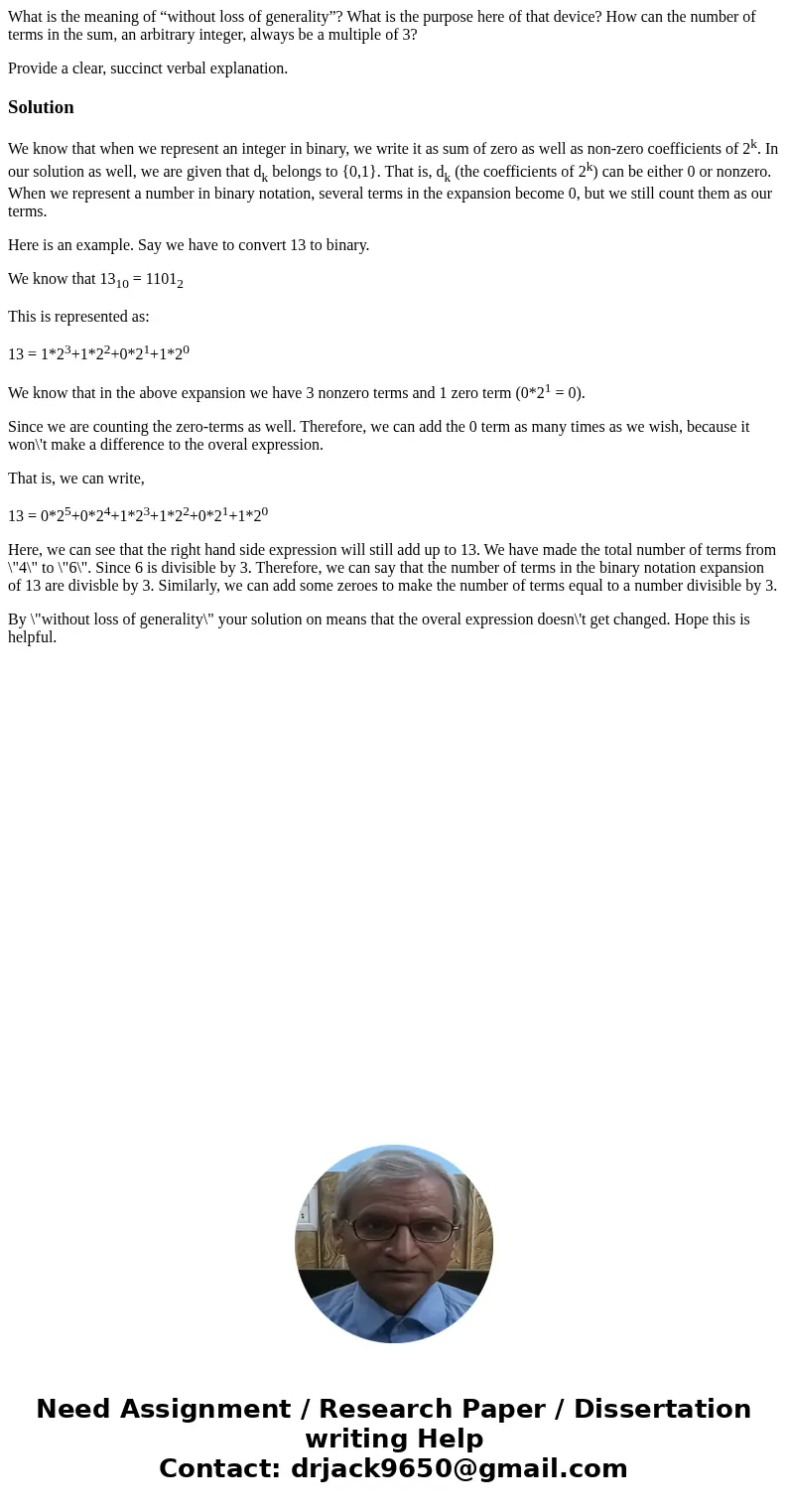What is the meaning of without loss of generality What is th
What is the meaning of “without loss of generality”? What is the purpose here of that device? How can the number of terms in the sum, an arbitrary integer, always be a multiple of 3?
Provide a clear, succinct verbal explanation.
Solution
We know that when we represent an integer in binary, we write it as sum of zero as well as non-zero coefficients of 2k. In our solution as well, we are given that dk belongs to {0,1}. That is, dk (the coefficients of 2k) can be either 0 or nonzero. When we represent a number in binary notation, several terms in the expansion become 0, but we still count them as our terms.
Here is an example. Say we have to convert 13 to binary.
We know that 1310 = 11012
This is represented as:
13 = 1*23+1*22+0*21+1*20
We know that in the above expansion we have 3 nonzero terms and 1 zero term (0*21 = 0).
Since we are counting the zero-terms as well. Therefore, we can add the 0 term as many times as we wish, because it won\'t make a difference to the overal expression.
That is, we can write,
13 = 0*25+0*24+1*23+1*22+0*21+1*20
Here, we can see that the right hand side expression will still add up to 13. We have made the total number of terms from \"4\" to \"6\". Since 6 is divisible by 3. Therefore, we can say that the number of terms in the binary notation expansion of 13 are divisble by 3. Similarly, we can add some zeroes to make the number of terms equal to a number divisible by 3.
By \"without loss of generality\" your solution on means that the overal expression doesn\'t get changed. Hope this is helpful.

 Homework Sourse
Homework Sourse